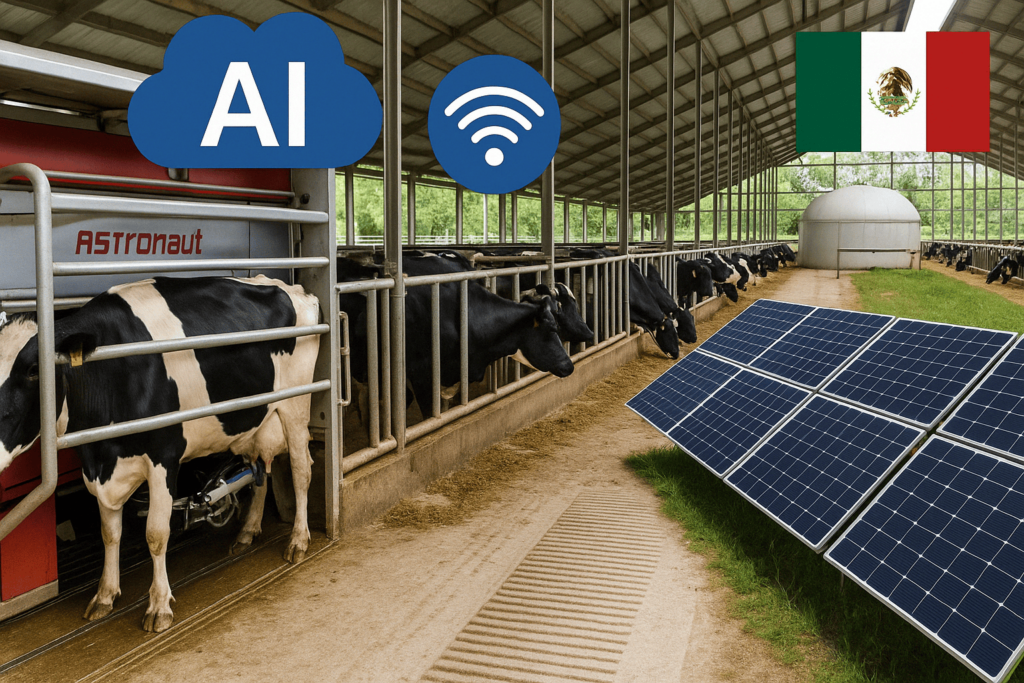The Mexican dairy industry, a vital sector for the nation’s economy, faces significant challenges. However, it is leveraging technological innovations to enhance production efficiency, product quality, and sustainability.
The Mexican dairy industry is one of the most crucial sectors in the country’s agricultural economy, ranking as one of the leading milk producers in Latin America. As of 2024, Mexico’s dairy production reaches approximately 13.5 billion liters, according to the Ministry of Agriculture and Rural Development (SADER). However, the sector faces significant challenges, including rising production costs, the growing need for sustainable practices, and increasing competition in both domestic and international markets. To tackle these issues, the dairy industry in Mexico is increasingly turning to cutting-edge technological innovations.
One of the key advancements driving this transformation is the use of sensors and connected devices that enable real-time monitoring of cattle health, feed consumption, and milk quality. These technologies, such as body temperature and activity sensors, alert producers to potential illnesses in the herd, which leads to quicker interventions and minimizes losses due to undiagnosed diseases. This results in more efficient and healthier livestock, improving productivity.
The introduction of automation and robotics has also revolutionized the industry, especially with innovations like the Lely Astronaut milking robot. These robots automate the milking process, gather data on each cow, and contribute to better herd management. This not only increases the daily production per cow but also reduces labor costs and alleviates stress on the animals, improving both their welfare and the efficiency of operations.
Artificial Intelligence (AI) is playing an important role by analyzing large volumes of data to predict consumption patterns and optimize production. Nestlé Mexico, for example, uses predictive analytics to adjust its production processes according to market trends, reducing waste and improving the sustainability of its operations. In addition, blockchain technology is being adopted to ensure transparency across the supply chain. Grupo Lala has implemented blockchain systems to enhance traceability, providing consumers with confidence that the milk they purchase meets high-quality standards.
Beyond production efficiencies, the industry is also prioritizing quality and safety. Advanced pasteurization techniques help retain essential nutrients while eliminating harmful bacteria, improving both the nutritional profile and shelf life of dairy products. Ultrafiltration systems are being used to filter out contaminants and bacteria, making milk safer and purer.
Sustainability remains a key concern, and Mexico’s dairy industry is turning to renewable energy sources like solar panels and biogas to reduce its environmental footprint. In Jalisco, some producers are using biogas systems to generate energy from animal waste, further contributing to the sector’s energy efficiency and sustainability efforts. According to a report from Research and Markets, the functional dairy market is expected to grow at a compound annual rate of 8.2% from 2023 to 2028, with technological advancements setting the stage for further growth in the sector.
In conclusion, despite facing economic pressures, the Mexican dairy industry’s embrace of technological innovation is positioning it to overcome its challenges and
